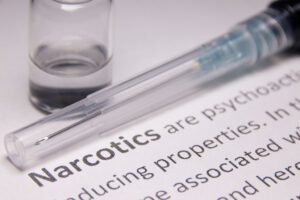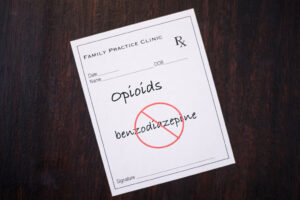
Understanding Opioid Narcotics: Risks, Treatment, and Recovery
Opioid narcotics, potent substances used for pain management, have become a focal point of public health discussions due to their high potential for addiction and
Rapid Detox Centers are medical facilities that offer a quick and efficient way to get through opioid withdrawal. The Waismann Method® has been the most highly respected rapid opioid detox provider for nearly two decades. Furthermore, our reputation for excellent medical care and superior results have made us a leader in the field of opioid addiction.
The Waismann Method® team provides patients with the most medically advanced, private, and effective anesthesia-assisted detoxification available. Patients travel to us from all over the world to receive our treatment.
Ultra Rapid Detox is a term first documented by Dr. Loimer in the late ’80s to describe opioid detoxification under anesthesia. Since then, there have been many different rapid detox centers with various treatment protocols. These versions include anesthesia assisted, rapid detox, Waismann Method, accelerated detox, rapid opiate detox, or rapid drug detox. The detoxification treatment works rapidly, inducing opiate detoxification while the patients sleep under anesthesia. The antagonist used in the detox also blocks the receptor sites, consequently reducing physical cravings. It is important to remember that regardless of the reason an opioid addiction started, the first step to recovery is successful detoxification.
More importantly, rapid detox can only be a safe and effective opioid treatment option when necessary safety procedures are followed. Sadly enough, that is not always the case. Some rapid detox centers choose to minimize medical care to cut costs. The results of these poor decisions often jeopardize patients’ comfort and sometimes even their well being.
Speak Confidentially
with an opiate detox treatment expert.
Rapid Detox Centers should follow a stringent set of medical protocols to ensure treatment effectiveness and safety. Each of the following criteria is necessary to maintain adequate care during anesthesia-assisted rapid detox.
Rapid Detox Centers are only risky when they are not within a full service accredited hospital. One of the main concerns about performing rapid drug detox in ambulatory surgery centers is whether they are appropriately equipped to handle unexpected problems during detoxification.
This is a particular concern for adults older than 40, patients with multiple health issues, or multi substance users. The increased risk can be significantly minimized, with access to different specialists for adequate evaluation pre-detox and available immediate emergency medical resources. Furthermore, there are no time restraints in a hospital so that patients can stay more days, and other options of detox can be offered to patients that are not candidates for ultra-rapid detoxification.
Although there are always risks with any medical procedure, ensuring the proper screening and performing rapid drug detox in a hospital can significantly minimize complications.
Some of the risks include:
Nearly all medical professionals agree that all accelerated rapid detox centers should also provide mental health assistance to patients. A short-term recovery center will provide a safe, nurturing environment, which is crucial for this recovery period. More importantly, rapid detox should never be seen as a cure-all treatment but as an effective form of opioid detoxification treatment.
The Pro’s and benefits of Rapid Detoxification are too many to describe. Some of the most prominent are:
A Rapid Detox Center is a safe place to treat a person that is struggling with opiate addiction.
Comparing Rapid Detox Centers can be confusing, frustrating, and challenging. To identify one that is the best for you, analyze them by using some of the following guidelines:
What's New at Waismann Method®

Opioid narcotics, potent substances used for pain management, have become a focal point of public health discussions due to their high potential for addiction and

In today’s fast-paced world, the conversation around prescription medication misuse, particularly the mixing of benzodiazepines (benzos) and opiates, has become more crucial than ever. While

Welcome to your comprehensive guide on safely navigating the world of OTC (over-the-counter) drugs. In this essential read, we dive into critical tips and strategies



Get Newsletter Updates from Waismann Method®
"*" indicates required fields
We are available 7 days a week
DISCLAIMER: The text presented on this page is not a substitute for professional medical advice. It is for your information only and may not represent your true individual medical situation. Do not hesitate to consult your healthcare provider if you have any questions or concerns. Do not use this information to diagnose or treat a health problem or disease without consulting a qualified healthcare professional. Be advised that Opiates.com articles are derived from various sources and may not reflect your own country’s regulations.